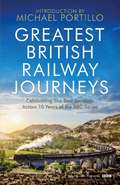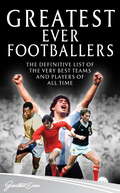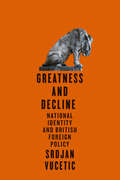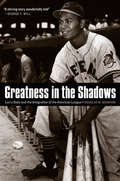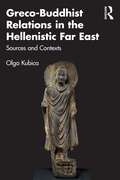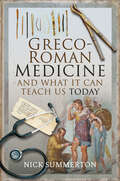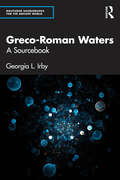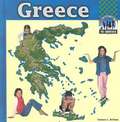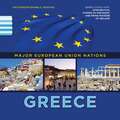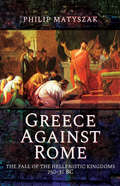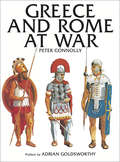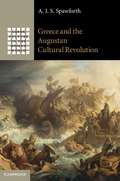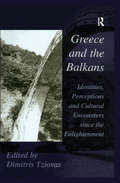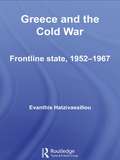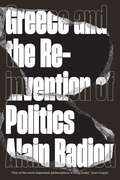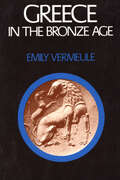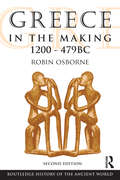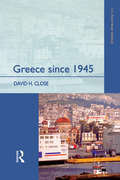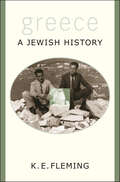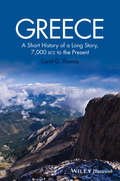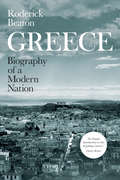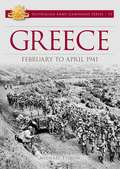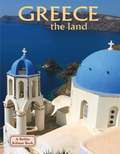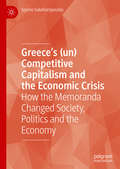- Table View
- List View
Greatest British Railway Journeys: Celebrating the greatest journeys from the BBC's beloved railway travel series
by Michael PortilloIt is now over a decade since the much-loved Great British Railway Journeys series set off on its incredible run discovering the cultural, social and engineering landscape of the United Kingdom through the prism of George Bradshaw's Handbook to rail travel. Veteran politician and ex cabinet minister Michael Portillo has since presented eleven seasons of this ever-popular show on BBC Two, covering every part of the existing train network in Britain, as well as others that were closed as a result of the Beeching Report in 1963. Across a decade of these journeys, Portillo has celebrated how every corner of England, Scotland, Wales and Northern Ireland was opened up by the railway line as a result of the Industrial Revolution, thus giving fans a unique insight into our shared past of train travel since the Victorian era. With the anniversary, this new collection will celebrate Michael's top fifty journeys from the hundreds he has covered, adding more insight and analysis to some of the greatest railway lines, stations, bridges, viaducts and tunnels the Victorians built to create the world we now live in. From Paddington Station to the Clifton Suspension Bridge; the Southend Pier line to the milk wagons departing from Blake Hall Station. An unrivalled narrative to be treasured. Greatest British Railway Journeys is both a celebratory and charming ride through our country's beloved history - all from the unique position of a train seat.
Greatest Ever Footballers
by The Greatest EverWho is the greatest ever footballer? Pele? Maradona? Cruyff? Who is the greatest ever British footballer? Charlton? Best? Dalglish? Who is the country's greatest defender, midfielder, goalkeeper?What are the greatest teams fielded by every club in the English and Scottish leagues?And what is the greatest international team of all time? How do you decide? Well, the facts don't lie.Based on a unique and comprehensive network of national and international football databases, compiled by football statisticians across the globe, each player is awarded points (for games played for both club and country) according to a series of criteria, such as win, lose, draw, whether they scored, goals conceded, captaincy, etc. Points accumulated for each game are also weighted in line with the competition in which the game featured and the quality of the opponents played. Each player's points are then fed through to the Greatest Ever compilers who update their lists on a weekly basis.The end result is the only objective, comprehensive and incontrovertible record of who are the greatest talents ever to have graced the beautiful game.
Greatest Rivalries in Sports
by David Scott Chris Dortch Ted Keith Stewart MandelStories about the greatest rivalries in college football, college basketball, pro football, and pro baseball.
Greatness and Decline: National Identity and British Foreign Policy (McGill-Queen's Transatlantic Studies)
by Srdjan VuceticExceptionalist ideas have long influenced British foreign policy. As Britain begins to confront the challenges of a post-Brexit era in an increasingly unstable world, a re-examination of the nature and causes of this exceptionalist bent is in order.Arguing that Britain's search for greatness in world affairs was, and still is, a matter of habit, Srdjan Vucetic takes a closer look at the period between Clement Attlee's "New Jerusalem" and Tony Blair's New Labour. Britain's tenacious pursuit of global power was never just a function of consensus among policymakers or even political elites more broadly. Rather, it developed from popular, everyday, and gradually evolving ideas about identity circulating within British – and, more specifically, English – society as a whole. To uncover these ideas, Vucetic works with a unique archive of political speeches, newspapers, history textbooks, novels, and movies across colonial, Cold War, and post–Cold War periods.Greatness and Decline sheds new light on Britain's interactions with the rest of the world while demonstrating new possibilities for constructivist foreign policy analysis.
Greatness in the Shadows: Larry Doby and the Integration of the American League
by Douglas M. BransonJust weeks after Jackie Robinson joined the Brooklyn Dodgers, Larry Doby joined Robinson in breaking the color barrier in the major leagues when he became the first black player to integrate the American League, signing with the Cleveland Indians in July 1947. Doby went on to be a seven-time All-Star center fielder who led the Indians to two pennants. In many respects Robinson and Doby were equals in their baseball talent and experiences and had remarkably similar playing careers: both were well-educated, well-spoken World War II veterans and both had played spectacularly, albeit briefly, in the Negro Leagues. Like Robinson, Doby suffered brickbats, knock-down pitches, spit in his face, and other forms of abuse and discrimination. Doby was also a pioneering manager, becoming the second black manager after Frank Robinson. Well into the 1950s Doby was the only African American All-Star in the American League during a period in which fifteen black players became National League All-Stars. Why is Doby largely forgotten as a central figure in baseball’s integration? Why has he not been accorded his rightful place in baseball history? Greatness in the Shadows attempts to answer these questions, bringing Doby’s story to life and sharing his achievements and firsts with a new generation.
Greco-Buddhist Relations in the Hellenistic Far East: Sources and Contexts
by Olga KubicaThis book provides the first comprehensive and interdisciplinary view of the relationship between the Greeks and Buddhist communities in ancient Bactria and Northwest India, from the conquests of Alexander the Great to the fall of the Indo-Greek kingdom circa 10 AD. The main thesis of this book is the assumption that, despite the presence of mutual relationships and interactions between the Greeks and Buddhist inhabitants of the Hellenistic Far East, the phenomenon known conventionally as "Greco-Buddhism" never truly occurred. The individual chapters of this book provide an analysis of the main sources for Greco-Buddhist relations, mainly textual, but also archaeological and numismatic. The methods of philological and historical research are used in combination with postcolonial approaches to the study of the Greeks in India drawing from sociological research on ethnicity and intercultural relations. It is a rich source of information for anyone interested in Greco-Buddhist relations and is a great starting point for further research in this area. This volume is a valuable resource for students and scholars working on the Greco-Bactrian and Indo-Greek kingdoms, both classicists and those working on early Indian history, as well as those working on cultural exchange in the Hellenistic world.
Greco-Roman Medicine and What It Can Teach Us Today
by Nick SummertonThere can be little doubt that the Romans experienced many of the illnesses that are still encountered today, and individuals have always had to decide how best to deal with their health-related concerns. The Roman Empire was an amalgam of many cultures, often with dissimilar ideas and beliefs. The Greek impact on health was particularly dominant and, therefore, this book focuses on Greco-Roman medicine as it was practised during the Pax Romana, the period between the accession of Augustus and the death of Marcus Aurelius. Drawing on ancient literature supplemented with evidence from archaeology, paleopathology, epigraphy and numismatics the Greco-Roman medical context is carefully examined. A particular focus is on the effectiveness of approaches to both preventing and treating a range of physical and psychological problems. Detailed consideration is also given to the ancient technical and hygienic achievements in addition to the place of healers within Roman society. Uniquely, within each chapter, the author draws on his own clinical and public health experience, combined with modern research findings, in assessing the continuing relevance of Greco-Roman medicine. For example, Galen`s focus on access to fresh air, movement, sensible eating and getting sufficient sleep matter as much today as they did in the past. Our classical forebears can also assist us in determining the best balances between prevention and treatment, centralised control and individual responsibility, as well as the most appropriate uses of technology, drugs and surgery. Some ancient pharmaceutical compounds are already showing promise in treating infections. In addition, practising Stoicism and getting some locotherapy should be considered by anyone struggling to cope with the stresses and strains of modern life.
Greco-Roman Waters: A Sourcebook (Routledge Sourcebooks for the Ancient World)
by Georgia L. IrbyThe first of its kind, this book presents a wide range of passages exploring many aspects of the Greco-Roman watery world: physics, philosophy, weather, medicine, marine biology, religion and mythology, infrastructure, sailing, mercantile activities, and waterways that have been politicized. Offering a deep look at the many ways that water culture impacted the ancient world, both abstractly and tangibly, this collection provides a glimpse into the ancient mind and lived experience. It includes passages from literary, documentary, and visual evidence, organized along seven over-arching themes: "The Science of Water," "Water and Living Creatures,""Water in Religion and Myth," "Water and Society," "Humans on the Water," "Mercantile Waters," and "Conquering the Waters." Each selection is introduced by a contextualizing, exegetical paragraph. Explanatory notes assist with unfamiliar concepts; additional readings (both modern and ancient) are suggested; and cross references show the links between sections and topics. Greco-Roman Waters: A Sourcebook is suitable for students and scholars of ancient science and technology, the ancient environment, and the history of science, as well as those interested in the philosophy, intellectual culture, and environmental attitudes of the ancient Greco-Roman Mediterranean world.
Greece
by Tamara L. BrittonAn introduction to the history, geography, plants and animals, government, people, and culture of Greece.
Greece (Major European Union Nations)
by Kim EtingoffGreece's economy has struggled a lot in recent years, but it has a long, rich history to draw on to help solve its problems. Greece is known as the birthplace of democracy and the Olympics, among many other things. It has been a member of the EU since 1981. Today, the EU and Greece are working together to help solve this country's serious economic problems. Discover more about this exciting, modern nation!
Greece Against Rome: The Fall of the Hellenistic Kingdoms 250–31 BC
by Philip MatyszakThe acclaimed ancient world historian examines the centuries-long decline of Greek powers in the face of the growing Roman threat.Towards the middle of the third century BC, the Hellenistic kingdoms were near their peak. In terms of population, economy and military power, each was vastly superior to Rome, not to mention in fields such as medicine, architecture, science, philosophy and literature. But over the next two and a half centuries, Rome would eventually conquer these kingdoms while adopting so much of Hellenistic culture that the resultant hybrid is known as ‘Graeco-Roman’.In Greece Against Rome, Philip Matyszak relates this epic tale from the Hellenistic perspective. At first, the Romans appear to be little more than another small state in the barbarian west as the Hellenistic powers are consumed by war amongst themselves. It is a time of assassinations, double crosses, dynastic incest, and warfare. By the time they turn their attention to Rome, it is already too late .
Greece and Rome at War
by Adrian Goldsworthy Peter ConnollyIn this sumptuous guide to twelve centuries of military development, Peter Connolly combines a detailed account of the arms and armies of Greece and Rome with his superb full-color artwork. Making use of fresh archeological evidence and new material on the manufacture and use of the weapons of the period, the author presents an attractive and impressive volume that is both scholarly and beautifully presented with illustrations that are, quite rightly, recognized as being the best and most accurate representation of how the soldiers from these formidable military empires appeared.Greece and Rome at War lucidly demonstrates the face of battle in the ancient world. Covering the wars between the Greeks and the Persians and the epic contest between the Romans and their most capable opponent, Hannibal, as well as organization, tactics, armor and weapons, and much more, this excellent work brings the armies of Greece, Macedon and Rome vividly to life. This new revised edition contains a Preface by Adrian Goldsworthy.
Greece and the Augustan Cultural Revolution
by A. J. SpawforthThis book examines the impact of the Roman cultural revolution under Augustus on the Roman province of Greece. It argues that the transformation of Roman Greece into a classicizing 'museum' was a specific response of the provincial Greek elites to the cultural politics of the Roman imperial monarchy. Against a background of Roman debates about Greek culture and Roman decadence, Augustus promoted the ideal of a Roman debt to a 'classical' Greece rooted in Europe and morally opposed to a stereotyped Asia. In Greece the regime signalled its admiration for Athens, Sparta, Olympia and Plataea as symbols of these past Greek glories. Cued by the Augustan monarchy, provincial Greek notables expressed their Roman orientation by competitive cultural work (revival of ritual; restoration of buildings) aimed at further emphasising Greece's 'classical' legacy. Reprised by Hadrian, the Augustan construction of 'classical' Greece helped to promote the archaism typifying Greek culture under the principate.
Greece and the Balkans: Identities, Perceptions and Cultural Encounters since the Enlightenment
by Dimitris TziovasGreece and the Balkans explores the cultural relationships between Greece and other Balkan countries in the domains of language, literature, thought, translation, and music, and examines issues of identity and perception among the Balkan peoples themselves. The essays bring together scholars from across a range of disciplines: historians, anthropologists, linguists and musicologists with specialists on literature, translation, the history of ideas and religion. By raising issues of cultural hybridity, and nationalist or pre-nationalist interpretations of culture and history it lays claim to a place in the context of studies on nationalism and post-colonialism. Greece and the Balkans also contributes to a recognition of the Balkans as a site, like some postcolonial ones, where identities have become fused, orientalism and eurocentrism blurred and where religion and modernity clashed and co-existed. By approaching cultural encounters between Greece and the Balkans from a fresh and informed perspective, it makes a substantial contribution to the study of a rather neglected aspect in the history of a region which has suffered in the past from narrow-minded, nationalistic arguments.
Greece and the Cold War: Front Line State, 1952-1967 (Cold War History)
by Evanthis HatzivassiliouThis is the first study to present a comprehensive analysis of Greek foreign and internal policy during the Cold War, covering the key period from the country’s accession to NATO in 1952 until the imposition of the colonels’ dictatorship in 1967. Clearly divided into three parts: 1952-55, 1955-63 and 1963-67, this book deals with Greek foreign policy analysis; threat perception; the NATO connection (including Greek-US relations, the rise of anti-Americanism in 1955-58 and in 1964-67, the economic dimension of security and the issue of US military aid); Greek policy towards the Soviet bloc; and the regional dimension, mainly Greek policy towards Turkey and Yugoslavia, and (for the 1964-67 years) the Cyprus crisis which greatly complicated Greek security obligations. This book will be of great interest to students of Greek politics, Balkans history, the Cold War and strategic studies.
Greece and the Reinvention of Politics: On Greece
by Alain BadiouOne of the world’s leading radical philosophers analyses the failure of the Syriza experience in GreeceIn a series of seven trenchant interventions Alain Badiou analyses the decisive developments in Greece since 2011. Badiou considers this Mediterranean country “a sort of open-air political lesson”, with much to tell us about the wider situation. Greece is exemplary of “our fundamental contradictions in Europe, which are also ultimately the fundamental contradictions of the world such as it is—the world served up to the authoritarian anarchy of capitalism.”Notwithstanding the Greeks’ heartening opposition to the financial markets’ hegemony, Badiou considers it also important to address the reasons why this opposition failed. “Movementist” politics may arouse widespread sympathy, but for the French philosopher they have “absolutely no effect other than to temporarily trap the movement in the negative weakness of its affects.”Badiou argues that a consequential opposition inspired by the emancipatory politics of the past—or by what he calls “the communist hypothesis”—should set its compass by the “orienting maxims” proposed in this book, defining a direction for political action.
Greece in the Bronze Age
by Emily TownsendFrom the arrival of the first men in Greece to the fall of the Mycenaean palace-town in the thirteenth century B.C., this work captures the essential qualities of each period of pre-classical civilization: the slow development of the Neolithic culture, the rich and original Early Bronze Age, the fruitful yet tragic encounter between Minoans and Mycenaean Empire. The legacy of Mycenaean religion and art is reviewed, including material found in excavated palaces and their stored wealth of frescoes, carved ivories, silver and gold jewelry, vases, and bronze weapons. The author deals with the invasions of Greece, the growth of a Greek language and some of the problems of Linear B, and the impact of Crete and the East upon the mainstream of Greek development.
Greece in the Making, 1200–479 BC (The Routledge History of the Ancient World)
by Robin OsborneGreece in the Making 1200–479 BC is an accessible and comprehensive account of Greek history from the end of the Bronze Age to the Classical Period. The first edition of this book broke new ground by acknowledging that, barring a small number of archaic poems and inscriptions, the majority of our literary evidence for archaic Greece reported only what later writers wanted to tell, and so was subject to systematic selection and distortion. This book offers a narrative which acknowledges the later traditions, as traditions, but insists that we must primarily confront the contemporary evidence, which is in large part archaeological and art historical, and must make sense of it in its own terms. In this second edition, as well as updating the text to take account of recent scholarship and re-ordering, Robin Osborne has addressed more explicitly the weaknesses and unsustainable interpretations which the first edition chose merely to pass over. He now spells out why this book features no ‘rise of the polis’ and no ‘colonization’, and why the treatment of Greek settlement abroad is necessarily spread over various chapters. Students and teachers alike will particularly appreciate the enhanced discussion of economic history and the more systematic treatment of issues of gender and sexuality.
Greece since 1945: Politics, Economy and Society (The Postwar World)
by David H. CloseThe book draws extensively on research on modern Greece in recent decades, and on the many perceptive commentaries on recent events in the Greek press. It adopts both an analytical and chronological approach and shows how Greece has both converged with western Europe and remained distinctively Balkan. David Close writes clearly and forcefully, and presents a lively picture of the Greek political system, economic development, social changes and foreign relations. Aimed at readers coming to the subject for the first time, this is a readable and informative introduction to contemporary Greece.
Greece: A Jewish History
by K. E. FlemingK. E. Fleming's Greece--a Jewish History is the first comprehensive English-language history of Greek Jews, and the only history that includes material on their diaspora in Israel and the United States. The book tells the story of a people who for the most part no longer exist and whose identity is a paradox in that it wasn't fully formed until after most Greek Jews had emigrated or been deported and killed by the Nazis. For centuries, Jews lived in areas that are now part of Greece. But Greek Jews as a nationalized group existed in substantial number only for a few short decades--from the Balkan Wars (1912-13) until the Holocaust, in which more than 80 percent were killed. Greece--a Jewish History describes their diverse histories and the processes that worked to make them emerge as a Greek collective. It also follows Jews as they left Greece--as deportees to Auschwitz or émigrés to Palestine/Israel and New York's Lower East Side. In such foreign settings their Greekness was emphasized as it never was in Greece, where Orthodox Christianity traditionally defines national identity and anti-Semitism remains common.
Greece: A Short History of a Long Story, 7,000 BCE to the Present (Publications Of The Association Of Ancient Historians #No. 4)
by Carol G. ThomasGreece: A Short History of a Long Story presents a comprehensive overview of the history of Greece by exploring the continuity of Greek culture from its Neolithic origins to the modern era. Tells the story of Greece through individual personalities that inhabited various periods in the lengthy sweep of Greek history Uses an approach based on recent research that includes DNA analysis and analyses of archaeological materials Explores ways in which the nature of Greek culture was continually reshaped over time Features illustrations that portray the people of different eras in Greek history along with maps that demonstrate the physical sphere of Greece and major events in each of the periods
Greece: Biography of a Modern Nation
by Roderick BeatonWe know ancient Greece, the civilization that shares the same name and gave us much that defines Western culture today. Yet, as financial crises have convulsed Greece repeatedly since 2010, worldwide coverage has revealed just how poorly we grasp the modern nation. This book sets out to understand the modern Greeks on their own terms. How did Greece come to be so powerfully attached to the legacy of the ancients in the first place and then define an identity for itself that is at once Greek and modern? This book reveals the remarkable achievement, during the last three hundred years, of building a modern nation on the ruins of a vanished civilization—sometimes literally so. This is the story of the Greek nation-state but also, and more fundamentally, of the collective identity that goes with it. It is not only a history of events and high politics; it is also a history of culture, of the arts, of people, and of ideas. Opening with the birth of the Greek nation-state, which emerged from encounters between Christian Europe and the Ottoman Empire, Roderick Beaton carries his story into the present moment and Greece’s contentious post-recession relationship with the rest of the European Union. Through close examination of how Greeks have understood their shared identity, Beaton reveals a centuries-old tension over the Greek sense of self. How does Greece illuminate the difference between a geographically bounded state and the shared history and culture that make up a nation? A magisterial look at the development of a national identity through history, Greece: Biography of a Modern Nation is singular in its approach. By treating modern Greece as a biographical subject, a living entity in its own right, Beaton encourages us to take a fresh look at a people and culture long celebrated for their past, even as they strive to build a future as part of the modern West.
Greece: February To April 1941 (Australian Army Campaigns #13)
by Michael TyquinAs with the failed attempt to seize the Gallipoli peninsula in 1915, the allied campaign to assist Greece against a seemingly invincible German juggernaut was poorly conceived and probably doomed even as plans were made to assist that country. Like any campaign, however, it holds lessons for the contemporary student of strategy, tactics and history. Greece presented singular geographic difficulties for the defending forces, its mountainous defiles dictating the distribution of ports, road and rail routes. The primitive state of the national infrastructure did little to help a long-term defensive posture. Operations in Greece proved to be a nightmare, particularly for logistics units, which struggled with primitive communication systems in rugged terrain over which the enemy enjoyed total air superiority. Poor liaison between the Greek and Commonwealth forces did not help matters, nor was the force deployed adequate for its task. The allies never enjoyed air superiority, nor could they consolidate any in-depth defence in time to be effective. The official British history of the campaign stated that the ‘British campaign on the mainland of Greece was from start to finish a withdrawal'. Greece: February to April 1941 explores these complexities, and mistakes through the eyes of the Australian Army Medical Corps.
Greece: The Land (Lands, Peoples, and Cultures)
by Sierra AdareTakes you through the ancient and modern history of Greece. This work introduces you to the ancient city states such as Sparta and the modern cities of Athens and Patras. It also includes topics such as: roads, new and old; the origins of Greece; modern industries; and tourism, fishing, and farming.
Greece’s (un) Competitive Capitalism and the Economic Crisis: How the Memoranda Changed Society, Politics and the Economy
by Spyros SakellaropoulosThis book reviews the profound transformation to the Greek political economy in recent years and considers the reasons that have led to this transformation. Further, the author explores the social experimentation and social diversity that evolved as a result of the Greek and international economic crises. By challenging various assumptions made about the crisis, the author sheds light on Greek social relations and the country’s particular type of capitalist development.This book will be of value to both economists and sociologists, linking discussions about social class with economic, political and institutional analyses.
